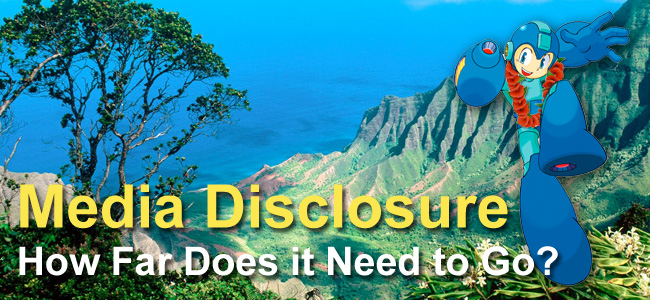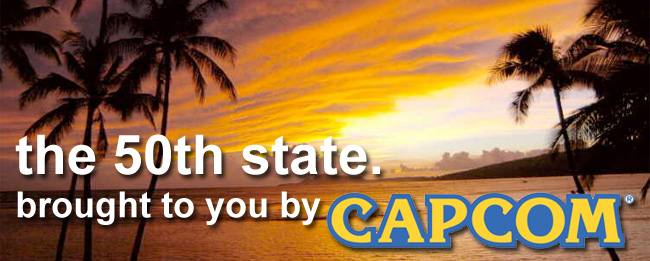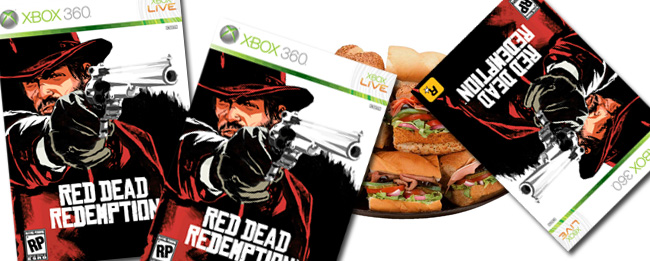
Sony gave me sandwiches.
Rather, Sony provided delicious sandwiches at the end of their E3 press conference last year, of which I promptly devoured three or so. This year, when writing about the conferences, will I need to disclose that Sony provided the shuttle from the Nintendo press conference to theirs, as well as what food I chose to eat and beverages I drank at their event?
According to the FTC’s recent law updates, I might be required to.
Apart from conferences like E3 or locally-hosted events, engaging with the press physically can be a rare occasion. Luckily, the digital age allows us to communicate quickly, efficiently, and securely — most of the time. The big obstacle, however, lies with how we interact with the actual product: games are meant to be played, not just seen on video or in pictures. Hands-on impressions go way beyond what can be said about the latest pretty game trailer. Hosting an event can be an ideal way to wrangle up the press for their time. But hosting an event in Hawaii?
The question may not be about the actual location, but about how the press gets there.
Capcom, like other publishers have done before it, hosted an on-location event in Hawaii for the Media to preview some of its upcoming lineup of games. Often times a publisher will offer to pay for the flight and housing of the attendees, and include food, drink, and social events. The offer is meant to be purely an “economical” way to have as many press outlets in attendance at once. The term most associated with this process is “junket”.
junket (n)
Main Entry (Merriam Webster): jun·ket
Pronunciation: \ˈjəŋ-kət\
Etymology: Middle English ioncate, ultimately from Vulgar Latin *juncata, from Latin juncus rush
1 : a dessert of sweetened flavored milk set with rennet
2 a : a festive social affair b : trip, journey: as (1) : a trip made by an official at public expense (2) : a promotional trip made at another’s expense <a film’s press junket>
The larger media publications – IGN, Gamespot, Gamepro — have in the past professed to paying for their own way for these trips. The conflict lies with the smaller, yet still influential outlets and persons. Can a blogger, who may have a strong following yet a small budget, really afford to pay for himself to go to Hawaii? Probably not.

Matt Chandronait, of Area5, explained the situation in his post “Captivate 2010, Part 1: PR, Full Disclosure, and Integrity“:
I was conflicted about accepting the invitation to attend Captivate… Why even muck about with questions of editorial integrity if you don’t have to? Not so simple a proposition when you’re faced with an either/or of paying your way to an event or paying salaries next month.
The only way he could afford the trip was for someone else to pay for it. But, he brings up a bigger, yet less understood issue of which Editorial integrity hinges on.
I figure full disclosure is the least that we can do so that anyone viewing our content after this sort of event can have the information to judge for themselves as to how slanted or (hopefully) un-slanted we and our opinions appear.
Impressions of content can be affected by the environment and the surrounding circumstances. I know this first hand coming from the automotive industry, where companies will often treat us to lavish dinners and entertainment when trying to win over our business… or good reviews. And it does happen. There is certainly sway, there is certainly bias, no matter how small. No matter how much someone fights it off, it’s impossible to not let our hearts get in the way of our heads. We will always feel like we “owe” the contributor in some small way, lest they never invite us again. Our nature is to prevent anyone getting pissed off at us.
Hopefully this isn’t to the point where we shift from hating a game to loving one, but about forming a more complete opinion. That can be difficult, though, as that “cloud” of “owing” hangs ominously overhead. And even if the publication pays their own way, avoids the excess socializing, and puts up an honest review it is still difficult as a consumer to decide if we trust their opinion because ours have been swayed by just the nature of the event.
Hawaii? Couldn’t they have held the event in San Fran? Or at their offices? Or just toured the press outlets?
We hear “Hawaii” and immediately think negatively. We wonder about who went, who paid, and who got paid. I polled several of the larger media outlets and a few smaller ones about their stance on junkets, disclosure*. For the most part, the larger outlets declined to comment or never returned my emails or calls. The smaller outlets replied swiftly and honestly, and none replied that they took the offer. Many attendees publicly tweeted regularly of their activities during Captivate, including partying, social events, and water-skiing.

The FTC now requires full disclosure of what the press — and even Average Joe Blogger — are offered. If I receive a review copy of Red Dead Redemption from Rockstar Games, I need to disclose it. If I take an offer for a trip to Chicago or Seattle or New York to see a game, I need to disclose it in my articles. Many smaller outlets have even honorably started to disclose if they purchased or rented a game for review, or if they turned down the offer for a free trip. Unless an outlet specifically states that it didn’t take the offer, or that it decided not to even go, we’re left to wonder.
Dan Hsu put it simplest on a recent episode of the MobCast when he said that the best way to avoid controversy is to avoid being friends with PR reps and publishers, and to limit going to these lavish events. Minimal contact allows for minimal ties and minimal slant towards a game. Being friends with Peter Molyneux when Fable 3 is on the way, or feeling sorry for a small developer who was rushed to complete a game, automatically places a level of doubt on any preview, review, or editorial.
But, we can sequester ourselves. As soon as professional contact is made, the initial ice is broken and the next time we see Ken Levine at an event we are more likely to chat with him. And, the more we chat with him, the more that there is a slight possibility that we might be less critical of his next game.
So where’s the line? When do we say it’s okay to go on a junket, be a friend to a developer, or to receive a promotional gift in the mail for an upcoming game? The FTC is forcing us to take the first step, which may be of value to our readers to know what was given to us for free. That still doesn’t resolve the issue of publications who don’t accept junkets (or promos) being lumped in perception with those who do. Frankly, we may never really know who’s opinion to trust.
It’s all so… muddy.
So, Sony gave me some terrific sandwiches at E3 last year. I had to buy my own Coke at Nintendo. And in both cases I saw some games. I hope that constitutes enough of a disclaimer.
*Note: The Editor-in-Chiefs of over two dozen popular online & print gaming publications were contacted for information on their disclosure policies and if they attended Captivate. Over three weeks’ time was given to them to reply. Only two replied, one of which preferred their publication to remain nameless. The following questions were asked: Did you send someone to Captivate? Did your company or Capcom pay for the trip? Will you disclose this information (either way) in your articles regarding the games viewed at the event?

1 Comment